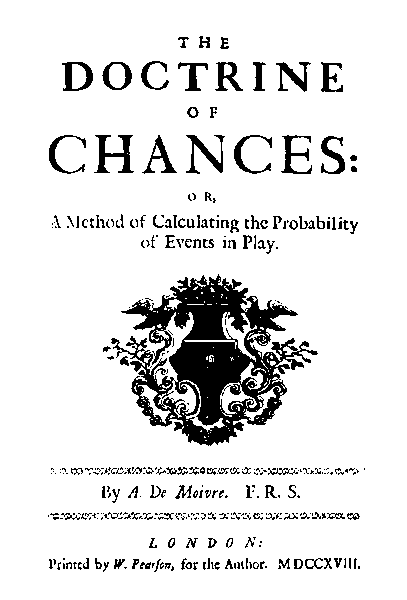The Doctrine of Chances was the first textbook on probability theory, written by 18th-century French mathematician Abraham de Moivre (1667–1754) and first published in 1718. De Moivre wrote in English because he resided in England at the time, having fled France to escape the persecution of Huguenots. The book’s title came to be synonymous with probability theory, and accordingly the phrase was used in Thomas Bayes’ famous posthumous paper An Essay Toward Solving a Problem in the Doctrine of Chances, wherein a version of Bayes’ theorem was first introduced.

It is not very easy to comprehend and it not groundbreaking by todays standards, but it has immense historical value.
Chance, as we understand it, supposes the Existence of things, and their general known Properties: that a number of Dice, for instance, being thrown, each of them shall settle upon one or other of its Bases. After which, the Probability of an assigned Chance, that is of some particular disposition of the Dice, becomes as proper a subject of Investigation as any other quantity or Ratio can be. But Chance, in atheistical writings or discourse, is a sound utterly insignicant: It imports no determination to any mode of Existence; nor indeed to Existence itself, more than to non-existence; it can neither be defined nor understood: nor can any Proposition concerning it be either affirmed or denied, excepting this one, “That it is a mere word.”Abraham de Moivre, 1735


